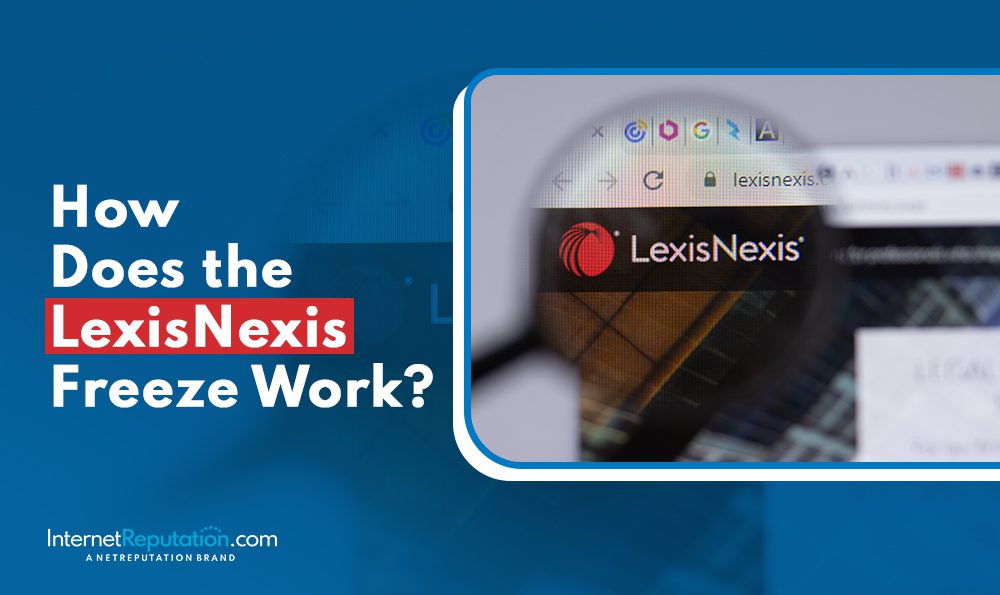What You Should Know About Prioritizing Executive Staff Personal Privacy
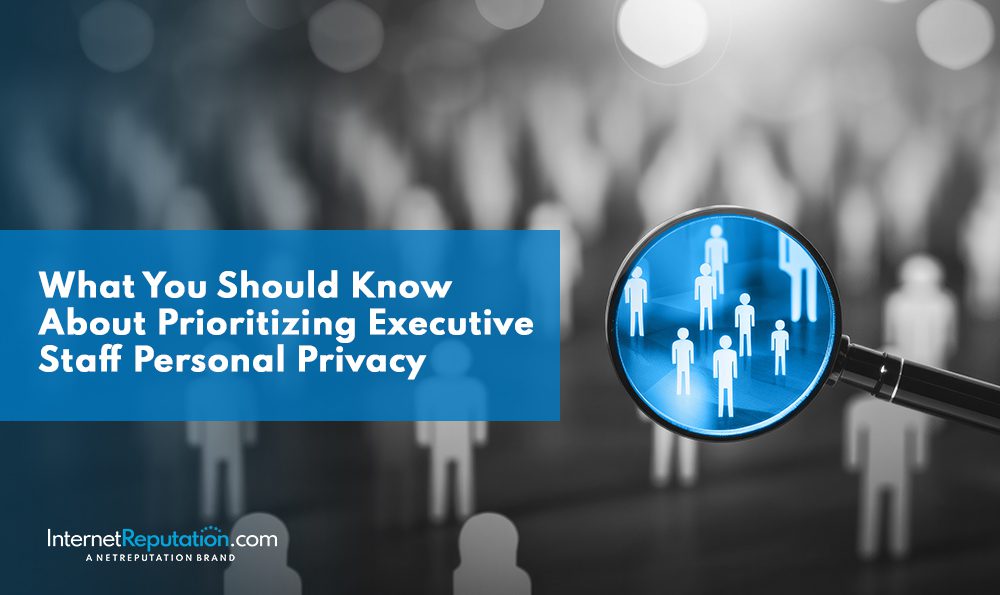
This article about executive staff personal privacy explains the importance of protecting personally identifiable information as well as other sensitive data online.
Every business keeps sensitive data on file in order to identify executives and other staff members. For example, companies need to retain banking information, email addresses, and Social Security numbers to carry out tasks like paying employees.
However, when that data falls into the wrong hands, it can be used for fraudulent purposes, like identity theft. Furthermore, CEO and executive data can cause in-person problems like harassment, stalking and even physical violence.
Company data and staff member information need to be safe from online breaches and real-life threats. Smart companies will prioritize the personal privacy of executive staff members before there’s a security breach.
To learn how you can protect your online data and your digital presence, contact us at 941-259-4554 today.
What Are the Types of Security Threats That Executives Face?
There are a number of cyber threats and real-life risks that executives face, including:
- Harassment
- Malware
- Phishing
- Physical violence
- Ransomware
- Stalking
- Viruses
Let’s go over some of these threats in more detail.
Mobile Device Security Threats

Today, everyone uses a smartphone in their daily lives for both personal and professional reasons. However, executives tend to be on their phones more than the average employee, and they often conduct important business via mobile devices. Additionally, with such demanding jobs, executives may have to frequently use their phones for personal reasons if they’re not home a lot of the time.
The more you use a mobile device, the higher the chance of a security attack targeting that device.
Smartphones and tablets can fall victim to malware and phishing schemes, and it’s even possible that cybercriminals will use your devices to spy on you through the device’s camera.
Phishing Schemes
A phishing scheme happens when an email or a website infects your device, usually a computer, in order to get information from it.
Typically, you’ll see an email or visit a website that seems trustworthy. For example, the email may come from a colleague you’re familiar with, or the infected website may look like one you visit often.
When the hacker sends you a file or link and you open it, they’ll gain access to your data, often without you even realizing it.
Ransomware Attacks
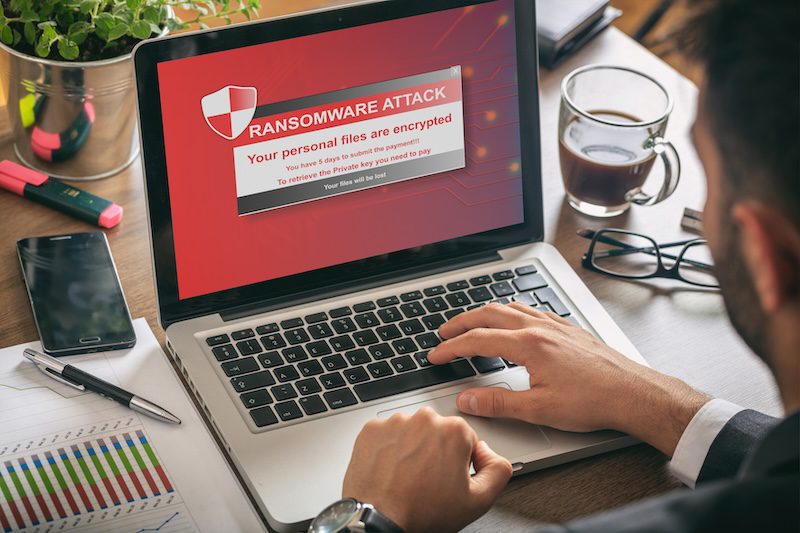
These types of cyber attacks have the purpose of gaining access to corporate systems and encrypting the data. This will make the data inaccessible to the company, and the only way they can regain access is to pay the hacker a ransom. Commonly, cybercriminals will threaten to release the information publicly or on the dark web if the company doesn’t comply.
Physical Security Threats
The worst types of security threats to executives are physical ones. Executives and their loved ones are at risk of in-person threats, including:
- Access to their homes
- Assassination attempts
- Kidnapping
- Physical violence
- Stalking
Executives may be at risk when at work; at their own home or other places of residence, like vacation homes; and even when traveling for personal or professional reasons.
How Do Security Breaches Impact Executives and Their Companies?
There are a number of repercussions when an executive is targeted in an attack. Let’s go over a few of them.
Financial Losses
It’s very common for security attacks on executives to be for the purpose of financial fraud. For example, a company CEO or executive may be tricked into transferring funds without realizing they’re actually going to the cybercriminals, not the assumed party. This can result in significant losses for the individual executive as well as the entire company. Furthermore, financial losses result in shareholders and customers losing their trust in your business.
Intellectual Property Theft

Executives often have access to important company information, such as intellectual property and strategic plans. Cyberattacks may specifically seek to steal this type of data, including proprietary technology and trade secrets.
When a cyber criminal steals intellectual property, it can end up in the possession of industry competitors, which can seriously undermine your company’s market standing.
Corporate Disasters
It’s common for executives to have access to highly confidential corporate information. When their security is breached, it can lead to a widespread corporate disaster.
As a result, the executive’s identity and the company’s online reputation could be subjected to extensive damage. And if the company doesn’t have an emergency plan in place, a poor response to the security breach could cause even more reputational damage for everyone involved.
To speak with an ORM expert about protecting your digital presence and rebounding from a PR crisis, call us at 941-259-4554 today.
How Can Executives and Companies Protect Sensitive Information?
There are a number of ways to protect executive security. While some of the responsibility falls on the executives themselves, much of it is the responsibility of the company.
Identity Management
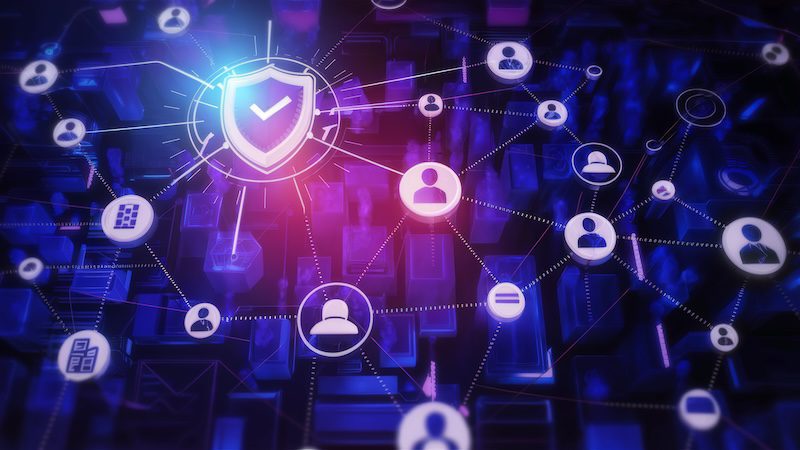
Companies should set up a centralized system to identify and manage identities. This way, organizations will be able to give the correct level of access to each individual at the company. Executives and staff members will only have access to the resources they’re allowed to access.
Strong Access Control
One of the best ways to secure an executive’s data and identity is through stringent access control. A reliable security system with advanced authentication methods should be used.
More than a single password should be required to gain access to high-level accounts, and even the primary password should be difficult enough that hackers couldn’t easily guess it. Some companies will also opt for biometric verification systems, which require identifiers like fingerprints, hand geometries, retina patterns, signatures or voice in order to gain access.
Fortified security measures limit access and reduce the possibility that cybercriminals will be able to gain access to executive accounts.
Encrypted Communication

The process of encryption turns data into code. That way, even if the information is intercepted, it won’t be readable. It’s important that executives and other company employees only communicate via encrypted channels.
In addition to only speaking about business matters via encrypted tools, executives should consider using encrypted communication channels in their personal lives, too. Why? High-level executives at well-known companies are often targeted by cybercriminals, and bad actors will use all sorts of means to steal information.
Secure Storage Solutions
Secure storage for company data is critical, and today, there are many cloud solutions that keep information safe from unauthorized access. While every security system could be the victim of an attack, many modern cloud storage systems are known for being reliably safe, particularly those that use military-grade encryption.
Chief Information Security Officer

It’s smart for companies to employ a Chief Information Security Officer (CISO) whose main role is to bridge the gap between executive security needs and the actions required to keep high-level employees safe. Additionally, a CISO’s expertise can also be used to develop new security strategies that should become part of company policy.
Employee Training
Far too often, data breaches occur because an employee unknowingly opens a file or clicks a link that they assume they can trust. To prevent issues like these, ensure that every employee goes through cybersecurity training as often as needed.
The training should include sample cyber security attacks so employees know how to recognize them, along with guidance on how to protect themselves from online threats.
Emergency Plans
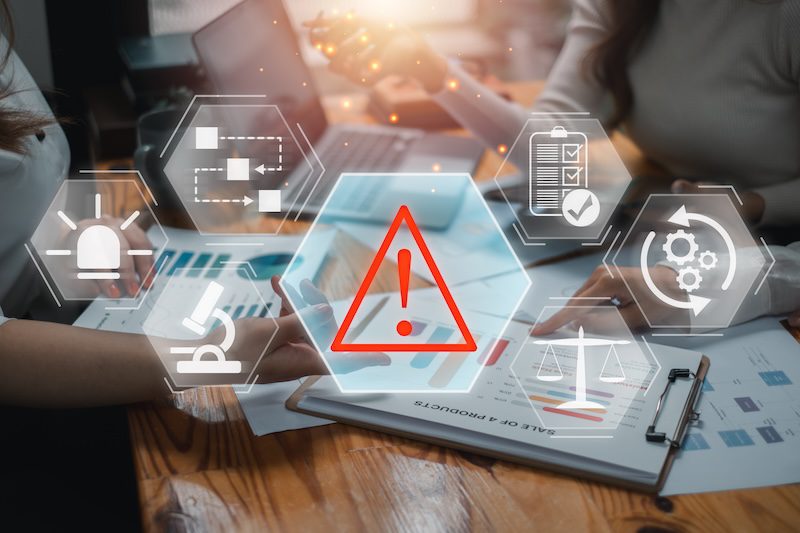
While properly handling a cyber threat is an important part of keeping your executives and company safe, even more important is preparing in advance for a security breach. Early preparation is the best way to mitigate risks and avoid attacks.
System audits, risk assessments and incident response plans are all part of being prepared for security incidents. Furthermore, regular testing is necessary to ensure your emergency plans are still effective.
Learn From Security Errors
Even in the worst-case scenario, executives and their companies can learn from their mistakes. It’s likely that new, company-wide policies will need to be created and instituted.
Not only will this prevent the same issue from occurring in the future, but it also shows employees, shareholders and the public that the problem was taken seriously and the company is holding itself responsible.
Speak with an online reputation management expert today by calling 941-259-4554 for a free consultation.
FAQ About Online Privacy for Executives and Companies

Who should have access to employee personal data?
Only certain people within the company should have access to an employee’s personal data. For example, the Human Resources (HR) department is usually able to access an employee’s private information. Additionally, direct managers may have access to some employee data. In general, though, employee information should only be accessed on a need-to-know basis.
Note that employees should always be able to access their own private data stored by the company.
Every company should have a policy that clarifies what type of information is accessible, who can access it, and under what circumstances it can be accessed. Generally, some types of information, like financial and medical records, will have stricter access rules than other types of data, like contact information.
Do employees have the right to privacy in the workplace?
Yes, employees have a right to privacy in the workplace, but those rights will be limited and decided upon by the employer.
Here are some common privacy-related guidelines that companies may instate:
- Confidentiality: Employees are allowed to keep sensitive data, like home addresses or medical information, confidential.
- Personal Space: Employees can use a locker or other type of personal space to store and secure their belongings. Sometimes, this is at the employee’s own risk.
- Searches: While many employees can refuse a search of their personal belongings, like their coats or bags, the company may have the right to search company-owned property, like desks and lockers.
Whatever the company’s guidelines are, employees should be made aware of them so they know what to expect.
What is an internal privacy policy?
A company’s internal privacy policy covers how employee information will be collected, stored, shared and used. Every employee should become familiar with their company’s internal privacy policy so they know exactly what’s happening with their data. Also note that companies must follow data protection laws in regard to their privacy policies.
Here are the points that an internal privacy policy should cover:
- Data Collection: The employee data that’s collected and the reasons why that specific data is collected
- Data Storage: Where and how the data is stored, including security measurements for keeping the information safe
- Access to Data: The roles in the company that have access to the data, including when they can access that information
- Data Sharing: When and how the collected data can be shared with third parties
- Data Retention: How long the information will be kept and when it will be deleted
Generally, the purpose of an internal privacy policy is to define how employees are protected.
Protecting Executive Privacy in a Digital World

In a world where personal information and sensitive data are more accessible than it’s ever been, executive privacy is no longer optional; it’s essential.
The stakes are high for both the executive and the company, not to mention the executive’s loved ones, company shareholders, and even the public. Security breaches can put personal safety in danger while destabilizing companies and ruining customer and stakeholder trust.
CEOs and other senior executives are particularly vulnerable due to their combination of having both a high, visible profile and high-level access to company data. This makes executives ideal targets for bad actors who are looking to exploit those in powerful positions.
Executives should take a multifaceted approach to staying safe online and in the real world:
- Understand the risks, such as having your online activities tracked and being harassed in real life.
- Minimize your digital footprint by using encrypted platforms for personal communication.
- Work with security professionals to manage your online presence.
Additionally, organizations should also take steps to keep senior leaders safe, such as implementing internal privacy policies and investing in cybersecurity resources and tools. This protects the executives as well as business operations.
CEOs and executives should always feel safe and protected at work and at home. This is the only way they’ll be able to put their focus on what matters most — providing guidance to teams, building trust, and maintaining a healthy work-life balance.
Effective management of your online privacy and digital reputation can set you and your company up for long-term success. Consider partnering with an online reputation management company that has the tools and expertise you need to safeguard yourself online while elevating your digital presence.
Contact us today at 941-259-4554 to speak with an ORM expert.

